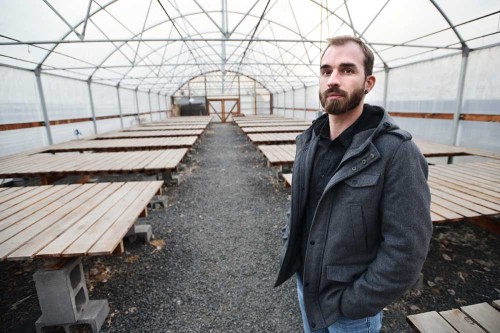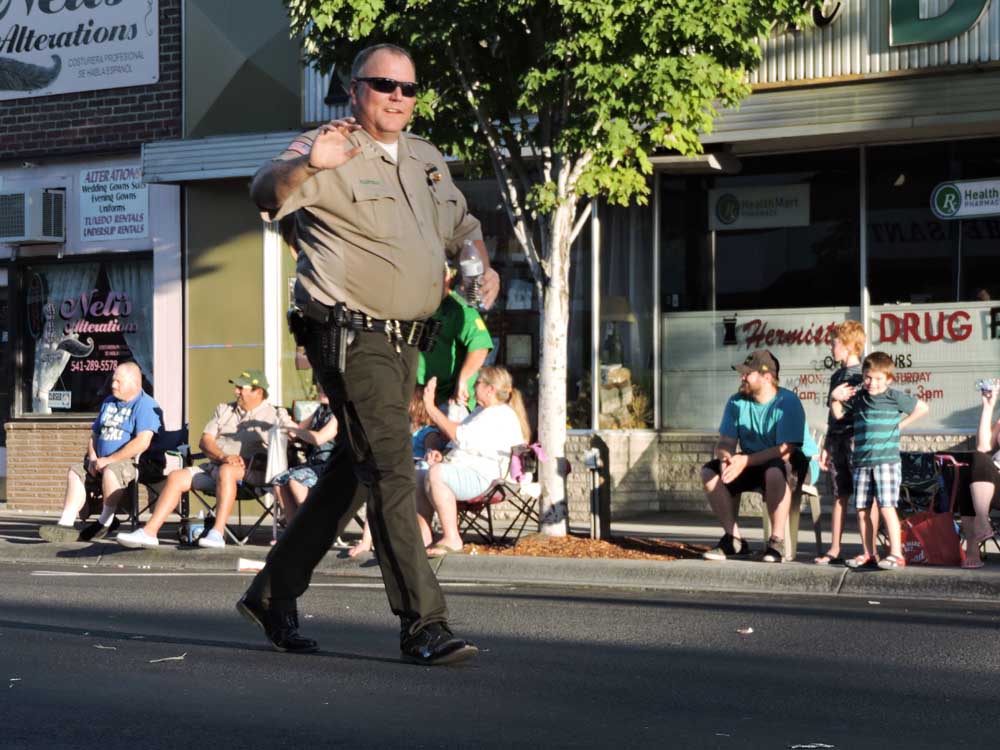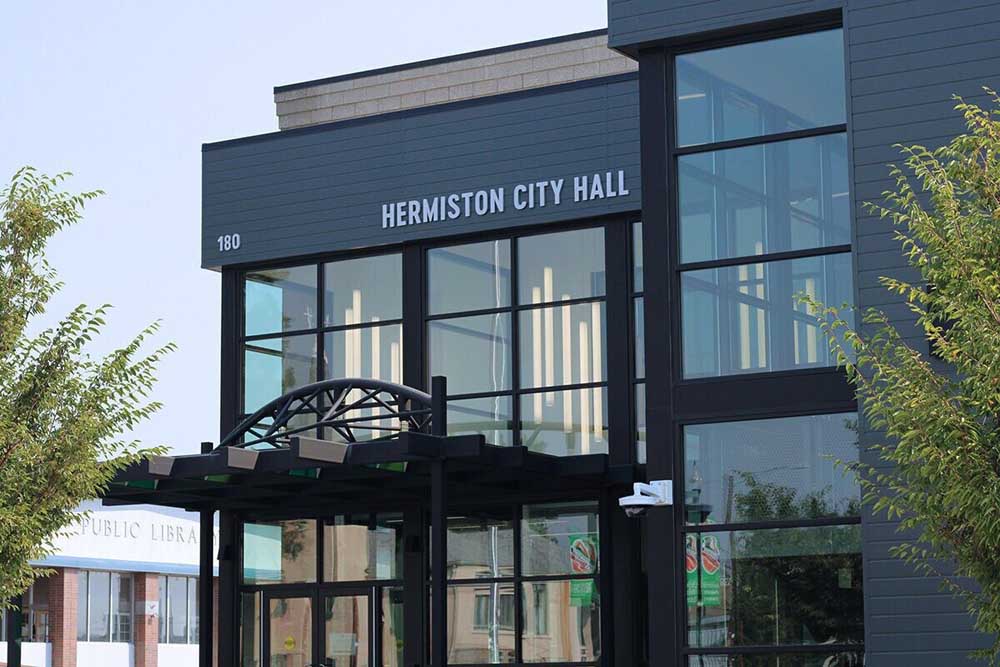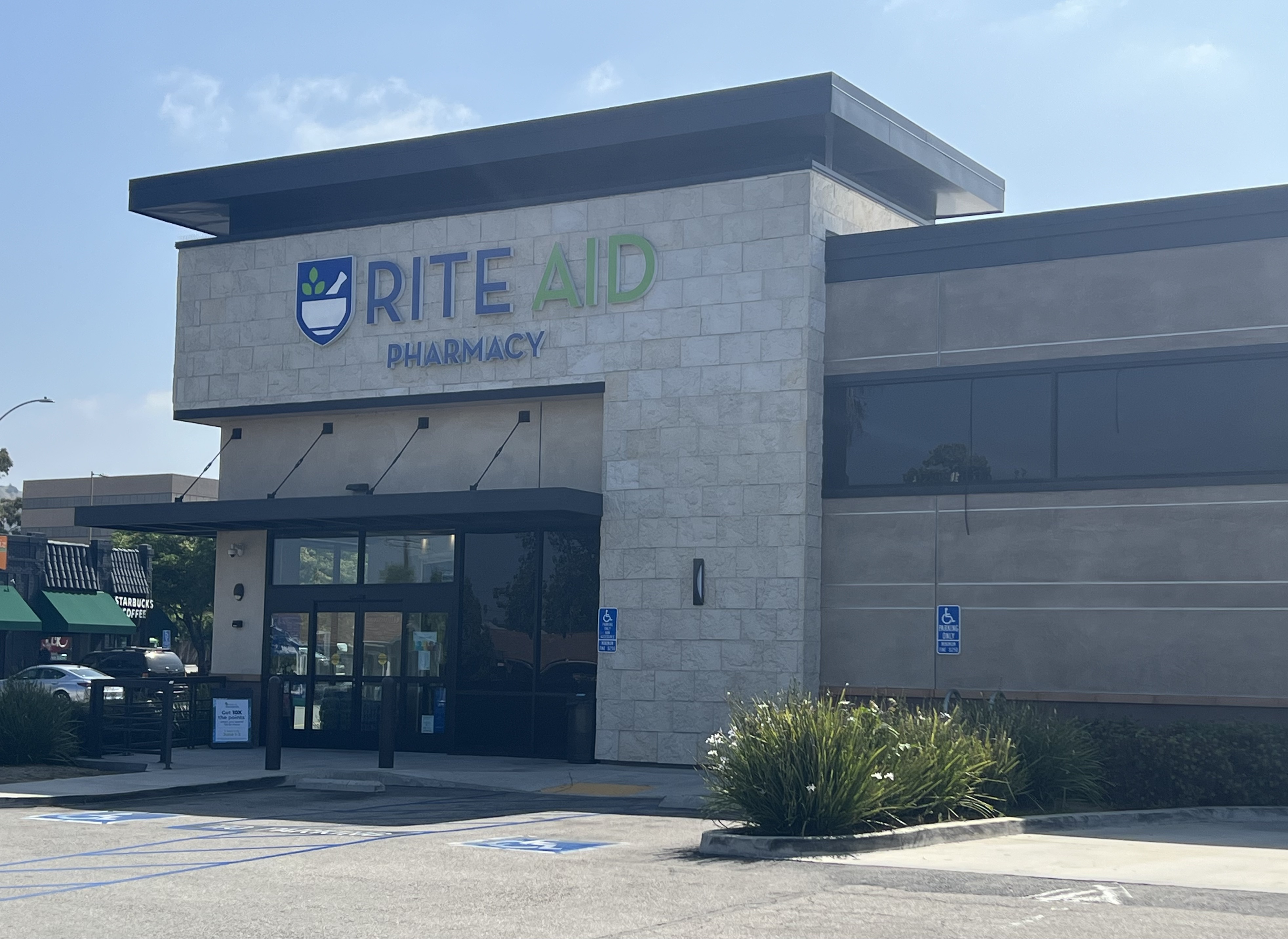PENDLETON Kind Leaf and city talk cannabusiness at chamber panel
Published 3:19 pm Thursday, May 17, 2018

- Brandon Krenzler, owner of Kind Leaf marijuana shop, said his store removed more than five dozen vaping products from its shelves in early September. Krenzler said it was about consumer safety.
Two years ago selling marijuana in Pendleton was illegal.
On Wednesday, cannabis business owners sat with the police chief and the city planner on a panel sponsored by the Pendleton Chamber of Commerce to talk about the city’s nascent marijuana industry.
Brandon Krenzler and Erin Purchase of Kind Leaf Pendleton were joined by Police Chief Stuart Roberts and City Planner George Cress at Oregon Grain Growers Brand Distillery, where they talked about the current state of cannabis rules and regulations and the industry as a whole.
Krenzler addressed an ongoing trend that’s affected dispensaries across the state — a massive oversupply in marijuana.
Oregon growers logged more than 1 million pounds of cannabis into the state database, according to state officials. Demand is not keeping up with supply, and with Oregon growers only allowed to sell their products to Oregon dispensaries, Oregonians consumed less than a third of that amount last year.
Roberts has long warned that overproduction of legal marijuana would fuel the black market instead of hinder it, but Krenzler took a more optimistic view.
Krenzler cautioned that some of that 1 million pounds were trimmings and stems used for extraction for other marijuana products rather than smoking, but he anticipated the lower prices that resulted from oversupply would be “the new normal.”
He acknowledged that some farms were prone to selling their surplus on the black market, but predicted that more professional grow operations would eventually replace the offending farms once their licenses were revoked.
Lower marijuana prices haven’t caused Kind Leaf to shrink its operations. Purchase said Kind Leaf employs 19 full-time positions, three part-time positions and is short-staffed by about two to three people.
Roberts spoke about how the cannabis market has affected public safety.
He said it was difficult to quantify the effect, but he noted a few general trends.
Roberts said police have found more marijuana paraphernalia at the elementary school level and cannabis edibles in the middle school and high schools.
There is no objective way to accurately determine if someone is driving under the influence of marijuana, but Roberts said that city law enforcement has seen an 11 percent increase in the number of drivers who answer affirmatively when police ask them if they’ve consumed marijuana in the past 24 hours. But he also added that smoking marijuana in the past day doesn’t mean their driving is affected by it.
Roberts said they also deal with people who are smoking marijuana in public, which is prohibited by Oregon law.
Purchase said the state could solve that problem by legalizing marijuana lounges, indoor public spaces where people can smoke marijuana in a social setting.
Kind Leaf frequently advises customers that they can’t smoke cannabis publicly, Purchase said, but people who shop at Kind Leaf from outside the area often don’t have a place to consume what they buy.
Not wanting to get high before they drive, Purchase said some of these customers go down to the nearby levy to smoke their joint.
Marijuana lounges would give these customers a place to smoke the cannabis they purchased, with Krenzler adding that ventilation and filtration systems prevent these business from becoming dense with marijuana smoke.
Cress, the city planner, said Pendleton zoning rules for marijuana businesses would need to change if the state incorporated lounges into the mix.
Cress has only been on the job for a few months, but he was working for the city of Forest Grove when it went through its own legalization process.
Although public hearings about marijuana businesses can get contentious, Cress said there doesn’t appear to be a need to limit the number of dispensaries in town.
Pendleton has three cannabis retailers (the city planning commission approved a fourth store, but it has yet to open), and Cress said they don’t have any other applications coming down the pike.
“It’s sorting itself out,” he said.
Cress didn’t know of any businesses that have moved out of town because of the marijuana industry, and even if they did, they wouldn’t have very many places to go.
Oregon already has 151 cannabis retailers across the state, and marijuana sales are also legal in Washington, California and other western states.
Cress said the mayor of Forest Grove used to tell him that marijuana got more votes than he did when they were on the ballot together, meaning it was an issue cities needed to deal with.
It’s not a straight comparison, but a similar event happened in Pendleton.
While Pendleton Mayor John Turner was elected during the lower turnout primary election in May rather than the general election November, both 2016 ballot measures to legalize medical and recreational marijuana sales received more votes in 2016 than Turner did for mayor, even as he ran unopposed.
———
Contact Antonio Sierra at asierra@eastoregonian.com or 541-966-0836.





